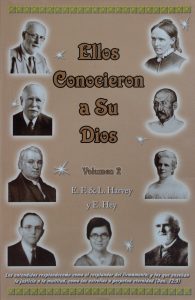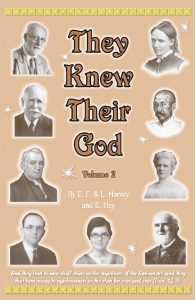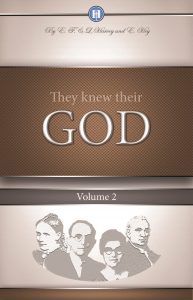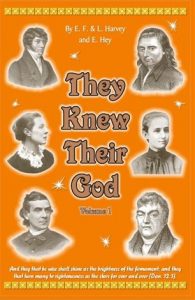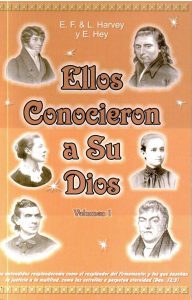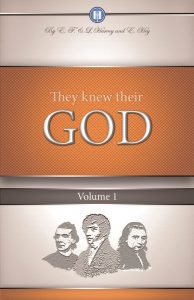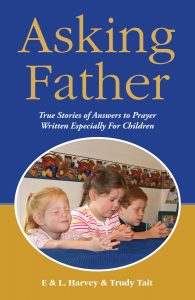
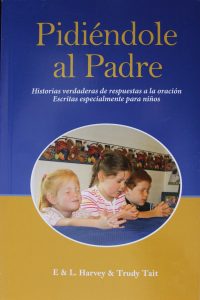
 Thanks to Hurricane Florence, flooding is on most of our minds just now. Evidently, however, flooding in North Carolina has been happening for a very long time. In the children’s book, Asking Father, we read of how God used a flood to answer prayer! Many years ago, a group of believers wanted to build a church in downtown Swan Quarter, NC. but the owner of the building lot refused to sell it to them because he knew a business would be willing to pay more money. The believers reluctantly built their wooden, whiteboard Church on the edge of town. During a flash flood, however, this little building was lifted from its foundations. It floated downtown, landing on the disputed building site. The owner acknowledged the hand of God in this situation and let the church remain. Asking Father contains other encouraging stories of answered prayer, written especially for children.
Thanks to Hurricane Florence, flooding is on most of our minds just now. Evidently, however, flooding in North Carolina has been happening for a very long time. In the children’s book, Asking Father, we read of how God used a flood to answer prayer! Many years ago, a group of believers wanted to build a church in downtown Swan Quarter, NC. but the owner of the building lot refused to sell it to them because he knew a business would be willing to pay more money. The believers reluctantly built their wooden, whiteboard Church on the edge of town. During a flash flood, however, this little building was lifted from its foundations. It floated downtown, landing on the disputed building site. The owner acknowledged the hand of God in this situation and let the church remain. Asking Father contains other encouraging stories of answered prayer, written especially for children.
As Different As Chalk Is from Cheese: They Knew Their God Vol. 2
As Different As Chalk Is from Cheese: They Knew Their God Vol. 2
Continuing our study into the variety of characters cited in the series, They Knew Their God, here is Volume 2, noting, as with Volume One, the nationality, denomination, vocation, and the century in which they were born as relating to each character.
Volume 2. 20 characters described in 17 sketches.
Nationality: 1 Latvian, 1 German, 1 Chinese, 3 Irish, I Welsh, 3 Scots, 3 English, and 7 American.
Century: 1 from 17th century; 2 from 18th century; 15 from 19th century; 2 from 20th century.
Denomination: 1 Baptist, 1 Pietist, 3 CIM (China Inland Mission), 1 YWCA, 2 Quaker, 3 Methodist, 2 Anglican, 2 Presbyterian, 3 AEB (Africa Evangelistic Band), 1 JEB (Japan Evangelistic Band, 1 Christian Brethren.
Vocation—original and final.
Anglican curate
Author and hymn-writer
Book-keeper—traveling Quaker evangelist and philanthropist
3 Deaconesses
Farmer—Methodist bishop
Homemaker—author, and preacher
6 Missionary pastors/evangelists
2 Pastors/authors
Philosophy professor—Quaker mystic.
Presbyterian minister
Ribbon weaver —Pietist recluse
Scholar— pastor
Sex: 7 women; 13 men.
As Different As Chalk is From Cheese: They Knew Their God Vol. 1
As Different As Chalk Is from Cheese
One thing that hits you as you begin to read any of the books in the They Knew Their God series is how varied the stories are. I thought it might be an interesting study to note the nationality, denomination, vocation, and the century in which they were born as relating to each character, using a different blog for each volume.
Volume 1. 18 characters described in 18 sketches.
Nationality: 2 Swiss; 2 German; 1 Welsh; 6 English; 5 American; 1 Irish; 1 African.
Century of Birth: 1 13thcentury; 1 14th century; 4 18th century; 12 19th century.
Denomination: 2RC; 1 Baptist; 6 Methodist; 1 Reformed; 1 Christian Brethren; 1 Quaker;
1 A .M. B. (Algiers Mission Band); 1 S.A; 1 Presbyterian; 2 non-denominational; 1 S. I. M. (Sudan Interior Mission).
Vocation—original and final:
African prince—student preacher
Army sergeant—philanthropist/pastor/divine
Artist—missionary pioneer/author
Bible teacher
Home-maker/evangelist
Lawyer—preacher/counselor/Bible teacher
Merchant—lay preacher/mystic/martyr
Merchant—preacher
Minister
Missionary pioneer
Missionary/prayer-warrior
Noblewoman—deaconess
2 Preachers/evangelists
A. Colonel/preacher/writer
Scholar—mystic/preacher/author/divine
Servant-girl—prayer-warrior
Teacher—Christian educator
Sex: 7 women; 13 men.
More Memories
More Memories:
It was in the early to mid-seventies. My parents, Edwin and Lillian Harvey had already written and published a few books. Their extensive files provided ample material for further compilations. In what direction to branch out next must have been in their minds and in their prayers.
We were living in England in those days and, being interdenominational, my parents’ ministry brought them in contact with Christians from various backgrounds and denominations. One day, Tim, a young squadron leader in the RAF handed my father an autobiography, then popular on the Christian market, and asked him to read it. When my Father handed it back, Tim asked: “What do you think of it?”
“It’s well written, but does not stand up to the test of the cross,” my dad replied. “Miracles, spiritual wonders, amazing power—all these are emphasized, but not once is there a mention of the cross.”
I cannot remember the details of the ensuing conversation. I do know, however, that Tim challenged my dad to point him to biographies which did indeed pass the test of the cross! He was eager to read of men and women from various denominations and cultures who knew God intimately. My father recommended Men and Women of Deep Piety, but concluded that many of the current Christian biographies concentrated on what a man or woman had accomplished for God rather than on their spiritual journey. Not long afterwards, the They Knew Their God series began to materialize.
The characters they would choose to include in this series, my parents decided, would be varied. They would come from all over the world–England, Africa, Europe, America! They would not be confined to one denomination. It would not matter if they were Baptist, Methodist, Presbyterian, Anglican, or Roman Catholic. If they had striven to know God with all their being—that was the main criterion. And lay people would be included, both men and women. They would represent differing points of view, vocations, and cultures. Their journeys would take them on widely varying paths, but their destination would be the same! And, hopefully, the effect upon the readers of this series would be this: “I want to know God!”
It is no longer in the seventies. We entered the twenty-first century eighteen years ago. The world is changing fast. Some of the stories in these books may be considered out-dated. The language might be classed as somewhat “antiquated.” The standards presented might seem unreasonably high, but the goal in reprinting these books is, hopefully, the same goal as that which motivated my parents in the first place—to fuel the desire which lurks in the heart of every true follower of Jesus and to echo Paul’s words: “That I might know Him!”
Everything Matters
Everything in Order!
Manuscripts everywhere–three hundred and sixty-five of them–on the table, on every chair, and even, if I remember correctly, on the floor! My mother was the personification of order, so why, I wondered had she allowed these papers to remain all over our tiny living-room for hours if not for several days? Even the best of memories fade somewhat after sixty-five years or more, so some of the details of that morning may not be absolutely correctly relayed. But I can remember, vividly, asking my parents the question: “Why aren’t you putting away these papers? They’ve stayed there for ages.”
I don’t know what answer I was expecting, certainly not the one I received. “We’ve left them there,” my parents replied, “because we’re praying over them.”
That answer puzzled me at first. Not that I wasn’t used to our family praying over everything—my problems at school with bullies, my father’s Sunday sermons, church conflicts, financial needs—everything and anything was brought to God. But manuscripts? I didn’t understand.
“These manuscripts,” they continued, “are readings for every day of the year, so there are 365 of them. They are on different subjects—prayer, the importance of the Bible, suffering, missionaries, and many more. We are asking God to help us arrange them so that, in the future, those who read them will find something special to help them on that particular day.”
That made sense and I was satisfied. Order does count. How you arrange things was important, at least to our family it was.
I must have been around eight or nine at the time and I forgot all about the incident for a long while. The manuscripts were eventually put into book form and The Christian’s Daily Challenge came into being. Then, some years later, my parents began to receive letters from around the globe, telling not just that people had been blessed through reading the book but that, when they had been facing some crisis in their lives, the reading for that particular day had seemed written just for them. When I heard this, something clicked! I saw myself as a perplexed eight-year-old, staring at the 365 manuscripts that had invaded the privacy of our home.
Something still clicks, so much so that I am going to go right now to our website and see what the reading is for today. It is entitled “The Microscope of Love. “Don’t wait for tomorrow”; advises Frances Ridley Havergal. Take this day, the morning hours past, the evening ones to come, and apply this microscope, and see if you don’t find you are walking in the midst of miracles of love, and that all things are for your sakes.” Now that advice, I’m pretty sure, is relevant to every one of us! Check out these daily readings on our site. I think you’ll find it worth your while!
Trudy Harvey Tait
https://harveycp.com/?product=christians-daily-challenge-the
Small Beginnings
I thought that perhaps some of you who have read Edwin and Lillian Harvey’s books might like to know how it all began, or, to be more accurate, how “they” all began. Well, three hundred pounds, a sympathetic printing establishment called “Nelson and Knox” in Northern Ireland, and a few grains of mustard seed faith which, our Lord said, could remove mountains, and you pretty much have the origin of what we now know as “Harvey Christian Publishers.” Well, this is not quite accurate. Without a profusion of material from the extensive files that Lillian had slowly accumulated over the years, Harvey Publishers might never have come into being. The material in these files had already provided inspiration for the periodical The Message of Victory which Edwin and Lillian jointly edited. But although this little magazine had a circulation of thousands within the British Isles, they felt the time had come to produce inspired reading in a more permanent form—a daily reading book with quotations from godly men and women from various denominations and cultures. They would call it The Christian’s Daily Challenge. True, there were other daily devotionals on the market, but this book would be unique. It would unite the voices of saints of all ages and denominations in one grand challenge to godly living!
So, the material was there and the vision, but what about the finance? It was post war Britain. Life was not easy. Rationing was at its height and money was scarce. Edwin and Lillian were leaders of the Metropolitan Mission with British headquarters in Glasgow. They had enough money to live on, but that was all. Well, not quite. They had saved up over the years by going to auctions, buying up canned goods, and reselling them for a small profit to the kitchen staff at the mission’s Bible School.A few pennies here, a few shillings there, and three hundred pounds had been accumulated!
With many of the readers of their periodical in Northern Ireland, Edwin and Lillian had contacted a Christian printer there who was shocked when these novice authors announced they wished to print ten thousand copies of their first book! The printer informed them that they were either utterly crazy or people of tremendous faith! He must have decided on the latter and informed these naïve adventurers that he would allow them to print in installments. So they placed their hard-earned three hundred pounds in the printer’s hands, sold their first batch of books, and then paid for the next batch with money from these sales. A traveling salesman saw the book and decided he wanted to distribute it. And he did. The books spread over the British Isles. Thousands were eventually sold and blessed many readers all over the world. The name of this first book? The Christian’s Daily Challenge!
Covetousness: The Soul—An Immortal Guest
“Two things a master commits to his servant’s care,” said one, “the child and the child’s clothes.” It will be a poor excuse for the servant to say at His master’s return:
“Sir, here are all the child’s clothes, neat and clean, but the child is lost!”
Much so with the account that many will give to God of their souls and bodies at the great day: “Lord, here is my body; I was very grateful for it. I neglected nothing that belonged to its content and welfare; but for my soul, that is lost, and cast away forever. I took little care and thought about it.—Flavel.
Covetousness: A Ministerial Sin
In the book, Covetousness, written and compiled by Lillian Harvey, many aspects of the sin, Covetousness, are covered. In the following quotation, a former editor of the magazine, The Wesleyan Methodist, courageously states that this is a sin which is not uncommon among professed servants of God:
“It influences church legislation. It speaks out when the minister is considering a call to a new field. It gives direction as to the choice of sermon themes and throws a blanket of distrust over all benevolent deeds.

